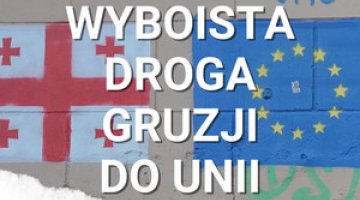Analyses
Georgia: Settlement with the Communist past
On 31 May, the Georgian Parliament adopted the Freedom Charter, a package of laws aimed at dealing with the country’s Communist past. This is another move by President Mikheil Saakashvili’s team aimed at breaking away from the historical and political heritage of the Soviet Union. The most important practical consequence of adopting the Charter will probably be the systematic removal of Soviet symbols from public spaces, a move which would inevitably cause negative reactions in Russia.
The main points of the Freedom Charter concern limiting the presence of symbols of totalitarian ideologies in public spaces, and limiting the access of former senior Communist Party functionaries and the Soviet security forces to public positions. A committee appointed by the head of state from among delegates of all parliamentary parties is supposed to implement the Charter’s provisions. The committee’s tasks include gathering information about the presence of totalitarian symbols in public spaces, then deciding whether to remove or keep them; and vetting candidates for key public positions. The adoption of the Charter has provoked strong negative reactions from Russia (including speeches in the Duma).
Given the young average age of many in the Georgian political and administrative classes, the Charter’s provisions on vetting are largely symbolic. The practical consequence of the new laws will probably be the beginning of the systematic removal of communist symbols from public spaces. A forerunner of this process was the dismantling of the Soviet war memorial in Kutaisi in 2009, and the statue of Joseph Stalin in Gori in 2010. It is expected that the introduction of the Charter into law will be used by Moscow to intensify its anti-Georgian rhetoric. <MMat>



